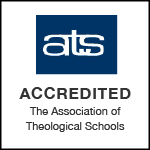UD Aviation Program Receives $400,000 in Federal Funding to Acquire New Flight Training Device
Mar 17, 2011 | University of Dubuque Theological Seminary
The University of Dubuque has received a $400,000 grant from the U.S. Department of Education to be used toward the purchase of a new Flight Training Device (FTD). The Aviation Department has contracted with Aerosim - a leader in aviation training services and technologies - to build an Federal Aviation Administration Level 5 compliant FTD for the Canadair Regional Jet (CRJ) 200 aircraft. The training device will give students advanced tools to be competent and competitive for their respective aviation career tracks.
"Grant funding from the Department of Education makes the acquisition of our new FTD possible," stated Steven Accinelli, aviation professor and department chair. "This state of the art avionics and navigational equipment will make a significant improvement to our aviation program, to the progress of our students, and will increase their competitiveness in the aviation marketplace. It will contribute to the University's overall mission of providing academic excellence to our students and enhancing their education by the use of current and advanced technology as well as to the aviation department's goal of being major center of aviation training excellence in the Midwest."
The FTD will adhere to FAA compliance standards and include a cockpit with all associated system panels. Benefits include showing students many critical operations and procedures such as: traffic collision avoidance system with resolution advisories, enhanced ground proximity warning systems, wind shear alerts, on-board radar, thunderstorm avoidance, icing systems, engine failures at rotation, single engine procedures, fire protection panel, turbine engine starts, systems failures, autopilot operation, deicing operations.
"This level of advanced training is simply required for UD graduates to be successful in today's high technology aircraft environment," commented Accinelli. "The capabilities of this device will bridge the gap in transitioning students from basic fundamental skills in training aircraft into application and understanding of advanced systems/procedures that they will encounter as they progress in becoming a professional pilot."
The FTD encompasses a physical hardware replica of CRJ panels and components, a 220 degree visual system with customized airports and a control loading system.
The hardware also provides:
- the most realistic and comprehensive training scenarios for the aircraft;
- dual seat, dual control column, and two sets of rudder pedals with toe brakes. The unit's full range of capabilities for the most effective, risk-free training of pilots isenhanced with a digital control loading software system providing simulated aircraft flight management system for producing wind shear scenarios and over 100 aircraft malfunctions;
- field of view cylindrical screen and cross cockpit views, providing student pilots with realistic visuals; and
- a navigation database that can be updated annually along with a lesson plan editor for creating new programs.
"Aerosim has led the field in innovative, feature-rich training tools and technologies that have been used in university, regional, and air transport markets for nearly twenty years," commented Phil Brown, vice president of operations for Aerosim. "The CRJ Flight Training Device for Dubuque will bring together Aerosim's combined core competencies in avionics, leading edge systems simulation, and visual modeling with hardware design and the experience of customizing equipment that has met the training needs of numerous airlines worldwide. What sets us apart from the competition, I believe, comes down to fidelity. Many US regional airlines use Aerosim's CRJ 200 software, so most likely when University students leave and go to a regional carrier they are going to be using Aerosim products there as well - giving students a "leg up" on the competition."
The process to secure federal funding was started over ten years ago. Faculty members in the Aviation Department played a significant role in developing the "case for support." The University is grateful for the strong support for this proposal from Iowa Congressman Bruce Braley and our entire Iowa Congressional delegation.





